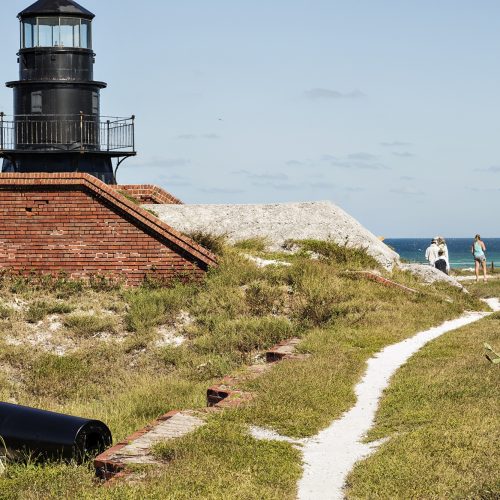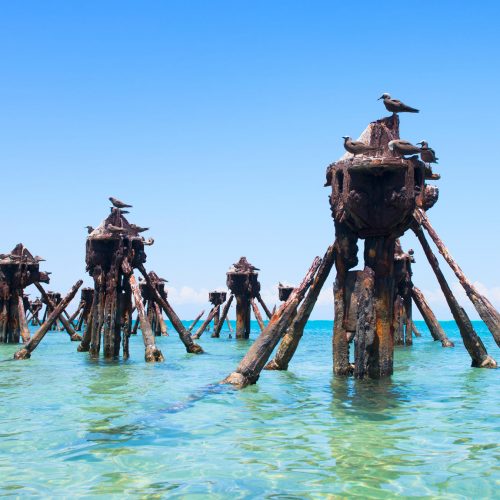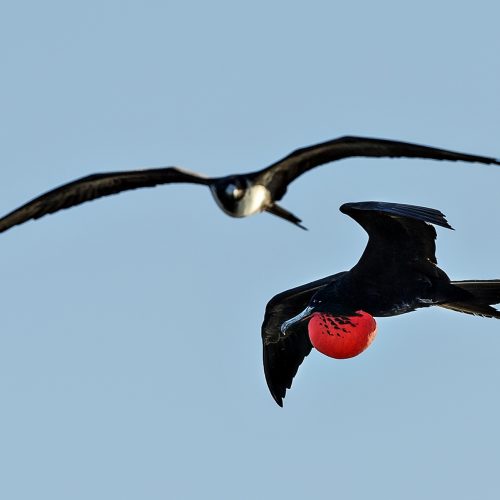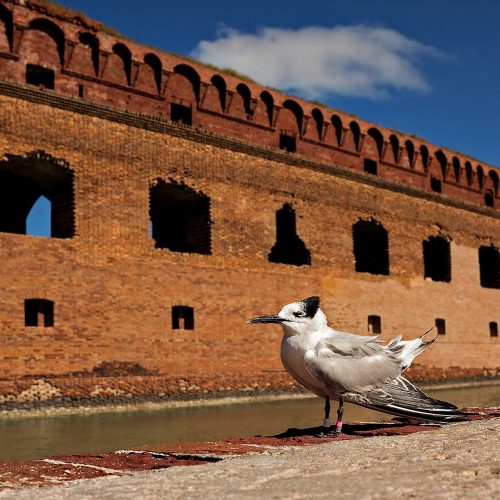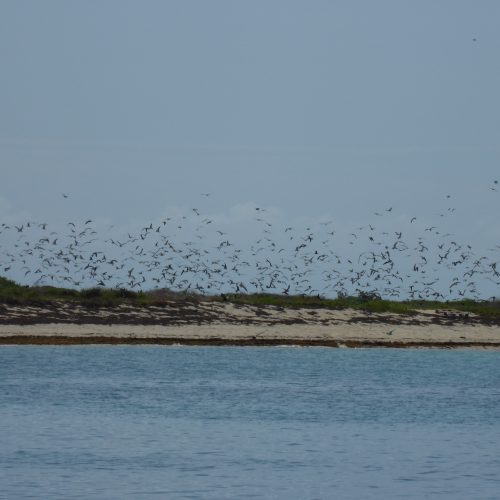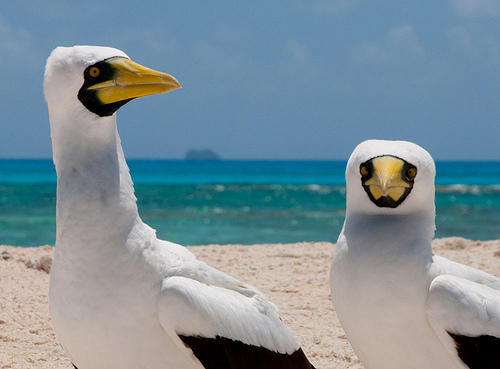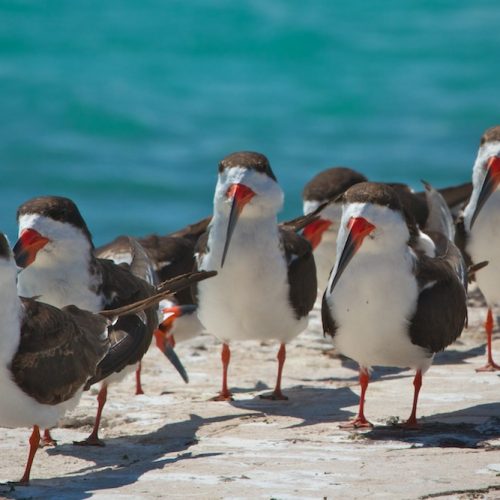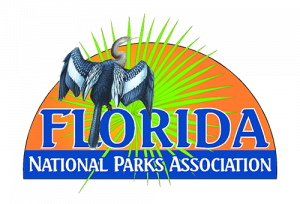The Dry Tortugas soundscape is a complex mixture of natural and human sounds. The park’s remoteness and location make it desirable habitat for both residential and migratory species of wildlife. Yet in regards to human safety and comfort, that same remoteness incurs noise pollution in the form of transportation and energy production byproducts from seaplane, vessel, and generator engines. Imagine what the noise levels at Fort Jefferson might have been like during the past, when the population of the fort swelled to nearly 2,000 with construction workers, soldiers, civilians, and prisoners during peak years, and when 25 Rodman cannons and 13 rifled Parrot guns were poised for use during wartime.
Away from the clamor of everyday life, the sounds that you hear during a visit to Dry Tortugas National Park are the soundtrack to your outdoor experience. Considered as a whole, the sounds heard in any particular location are considered to be the soundscape. The study of soundscape is the subject of acoustic ecology — the relationship, mediated through sound, between living things and their environment.
Acoustic resources are physical sound sources, including both natural sounds such as wind, water, weather, and wildlife, and cultural sounds and historic sounds such as tribal ceremonies and quiet reverence. What exactly is sound? Measured in terms of frequency and amplitude, sound is perceived by humans as an auditory sensation created by pressure variations that move in waves through a medium such as air or water.
Noise is sometimes used as a synonym for sound, but there is a subtle difference. Noise is a sound that is unwanted or inappropriate in an environment. Noise pollution is displeasing or excessive noise that may disrupt the activity or balance of human or animal life.
By law (Section 4.9, Soundscape Management, NPS Management Policies), national parks are required to restore and manage park acoustical environments and soundscapes. Soundscapes are important to visitors and can provide an environment that is free from human made noise, is rich with opportunities to experience solitude, quietude, and the sounds of nature, and tells a unique cultural or historic story.
